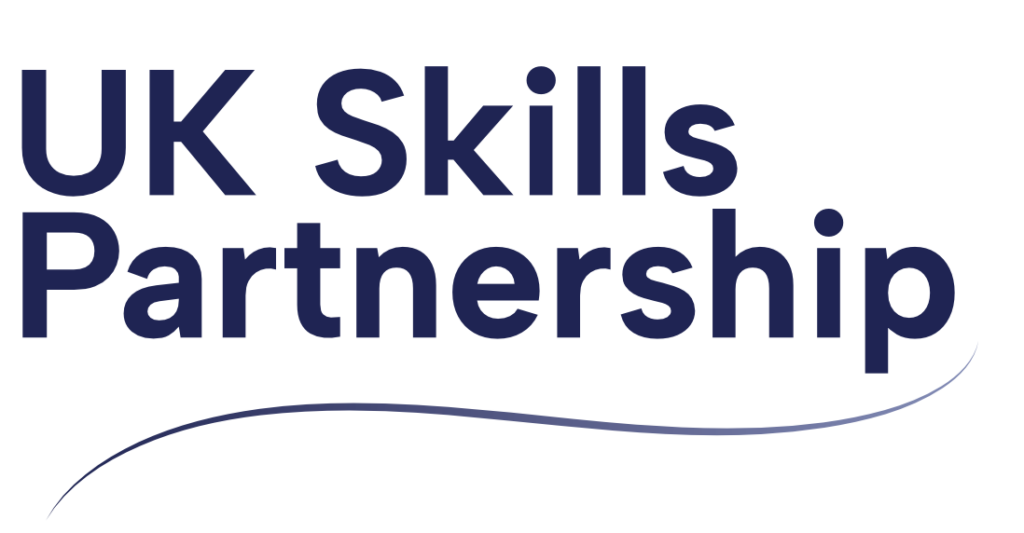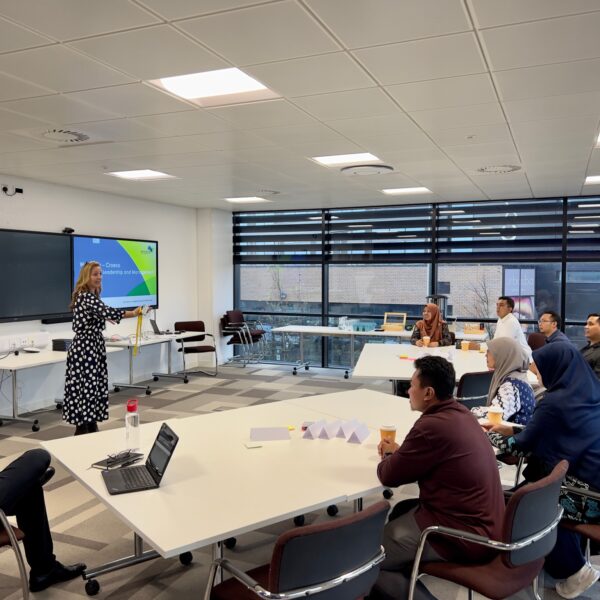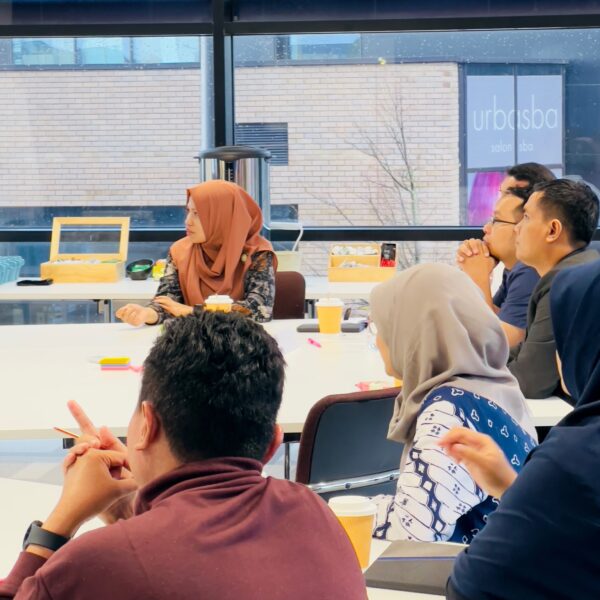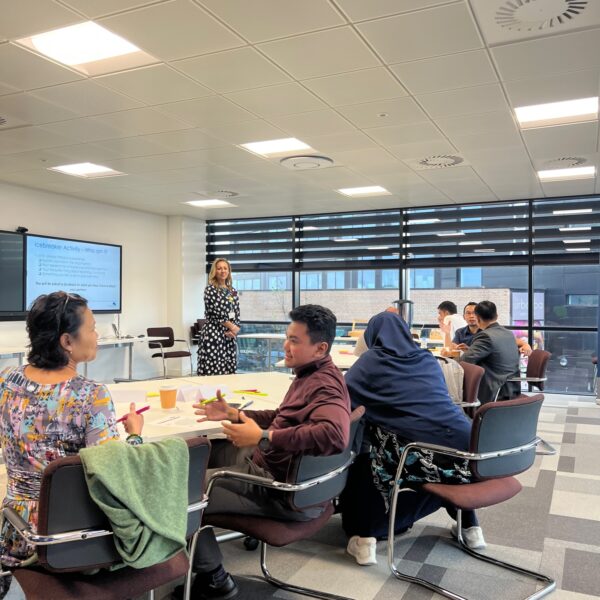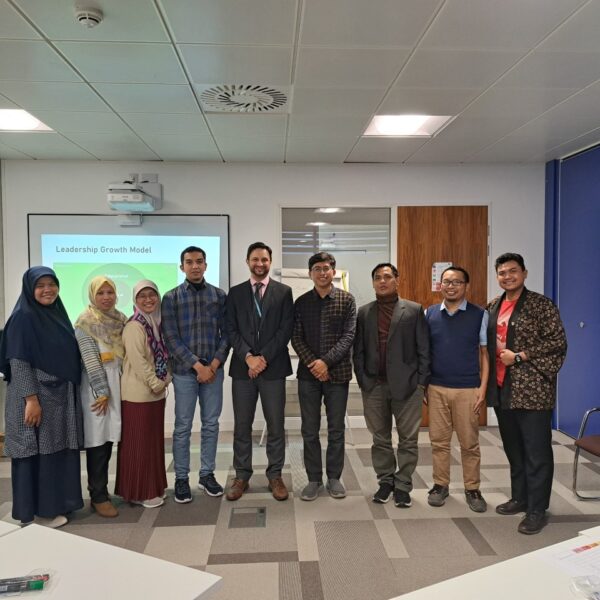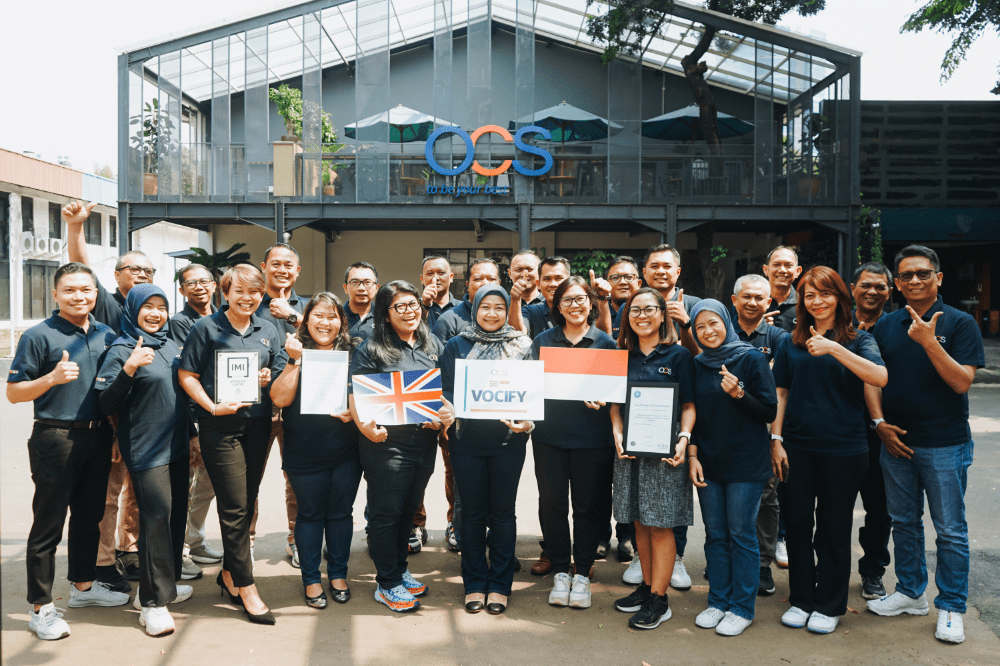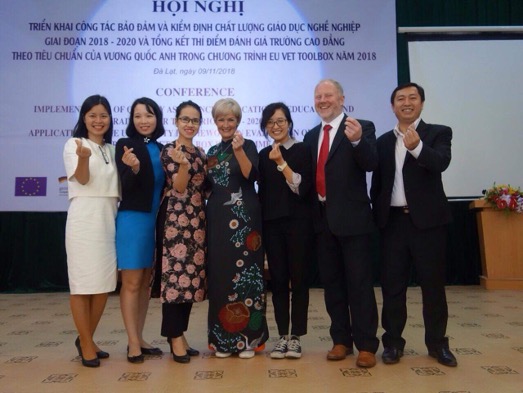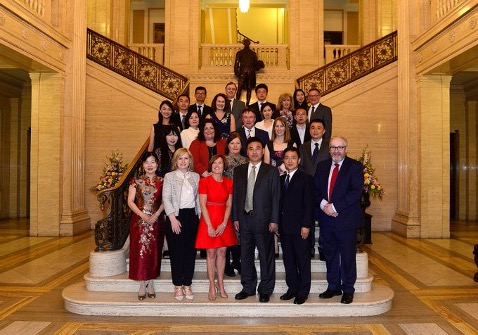Enhancing Leadership and Management Competence in Indonesia
Cardiff and Vale College (CAVC) designed and delivered a short leadership and management programme to TVET academics working in the Indonesian Polytechnic Sector. Key themes included leadership, organising and delegating resources, and creating a high-performance culture in the TVET educational workplace.
The principal outcome of the training was the successful completion of two accredited Institute of Learning and Management (ILM) units – Understanding Leadership and Understanding Organising and Delegating in the Workplace. All delegates successfully passed both these units and received ILM certification. This certification is aligned to the underpinning Regulated Qualifications Framework (RQF) principle of credit accumulation and credit transfer.
The delegates acquired and assimilated further contextual knowledge, insights, and a range of soft skills that will enable them to become more confident and effective as leaders in their respective institutions thus helping create optimal working cultures and relationships. As well as professional development, the delegates, and all those stakeholders in CAVC who interacted with them, were able to share and extend their cultural awareness and understanding.
McKinsey Global Institute predict that by 20230, Indonesia will become the world’s 7th largest economy and to realise this, the Government needs to prepare 113 million skilled human resources. To undertake this challenge, they needed a significant expansion in the capability and capacity, and reputation of the national TVET system with particular reference to the key vocational higher education sector.
As a result, in 2020, the Indonesian Ministry of Education, Culture, Research and Technology funded a large-scale programme to, among other things, develop and improve the quality of TVET by, for example, improving the percentage of lecturers in the TVET education system with industrial working experience or industry-recognised competency certification. Moreover, the Indonesian Government recognised the imperative of capacity building and providing opportunities for lecturers to learn good management of vocational higher education entities.
CAVC developed and delivered a short 2-week programme to meet the specific need of the Indonesian Government in terms of offering industry recognised certification to TVET staff. Eight (8) Indonesian TVET Lecturers from a range of geographically dispersed higher education institutions opted to travel to Cardiff to undertake a programme consisting of two accredited Institute of Learning and Management (ILM) units – Understanding Leadership and Understanding Organising and Delegating in the Workplace.
The programme set out to better define and understand key leadership and management concepts, identify areas of relative individual weakness and/or inexperience of delegates in relation to their role as current or future manager-academics and to consider progressive solutions / interventions transferable to the Indonesian TVET context. It was anticipated that active and direct engagement of delegates with their own leadership and management challenge and aspirations would also help promote transformative organisational culture change and meet Governmental objectives. Furthermore, the healthy dialogue generated between UK and Indonesian peers also revealed national similarities and differences in leadership and management approaches and ideology in contemporary vocational education.
The two ILM units were delivered by members of the CAVC commercial services team over a two-week duration in a classroom environment. Teaching methods were very much focussed on having delegates reflect on current practice and considering how they may look to change this positively in light of new knowledge and ideas presented.
Other activities included simulations and a visit to a local employer to demonstrate the links between theory and the world of work. Both units included a reflective based assessment to ensure all learning outcomes were achieved.
The skills solutions embedded in the programme were manifold. They were:
• to understand the needs/skills gaps of the delegates and what they hoped to get out of the programme;
• to enhance the professional competence and human capital of the cohort;
• to develop the capability and confidence of delegates to manage and lead vocational education;
• to improve the soft skills of delegates on the programme, including the use of Business English.
In addition, the programme actively invited feedback from Indonesian colleagues to help inform a comparative analysis of the role and expectations of UK and Indonesian based manager-academics operating in their respective TVET environments.
The principal outcome of the training was the successful completion of two accredited ILM units – Understanding Leadership and Understanding Organising and Delegating in the Workplace. All delegates successfully passed both these units and received ILM certification. This certification is aligned to the underpinning Regulated Qualifications Framework (RQF) principle of credit accumulation and credit transfer, such that the unit credit accumulated in the programme by delegates can be used towards another qualification at the same level, as well as helping to strengthen individual CVs.
The programme has given delegates tips, ideas, insights and a review of key management, organisational and socio-psychological literature to help them become more effect manager-academics and perhaps, more importantly, to help equip the delegates with more confidence, self-reflective and other skills to become potential new leaders in the Indonesian Polytechnic/TVET sector.
Feedback collected from delegates was overwhelmingly positive. Interestingly the delegates appeared to say more about the relative importance of leadership over management in the context of transformative change, and all were committed to applying new behaviours, ideas and techniques on return to their place of work in Indonesia.
Our intention is to reconnect with the cohort in November 2023 to see whether the delegates have been able to implement and sustain positive changes in their work and organisations, and to what extent this has been reflected more widely in their organisation among their peers and acknowledged by senior leaders both institutionally and sector wide.
In addition, the programme was successful in exposing staff at CAVC to different cultural approaches to TVET education.
CAVC (www.cavc.ac.uk) is a large publicly funded Further/Higher Education College located in the capital city of Wales.
By student volume, it is in the top five biggest Colleges of its kind in the UK. The history of CAVC is grounded in Technical and Vocational Education and Training (TVET) and the provision has evolved to deliver a range of programmes from Levels 2 through to Level 6 in vocational, professional and academic courses including apprenticeships.
These programmes are delivered in partnership with a range of Awarding Bodies including the Institute of Leadership and Management (ILM), Pearsons, City & Guilds, BTEC, and UK Universities.
In terms of TVET, CAVC works collaboratively with a range of employers, responding to their needs by developing talent pipelines, upskilling and reskilling workforces to equip them with specific competences needed to drive economic growth, increase productivity and close skills gaps in rapidly evolving labour markets. The College employs a range of experts in the wider pedagogic space who contribute insights into modern vocational education concepts, methods and practice, curriculum design, awarding body accreditation, technology enhanced learning (TEL), and lifelong learning.
